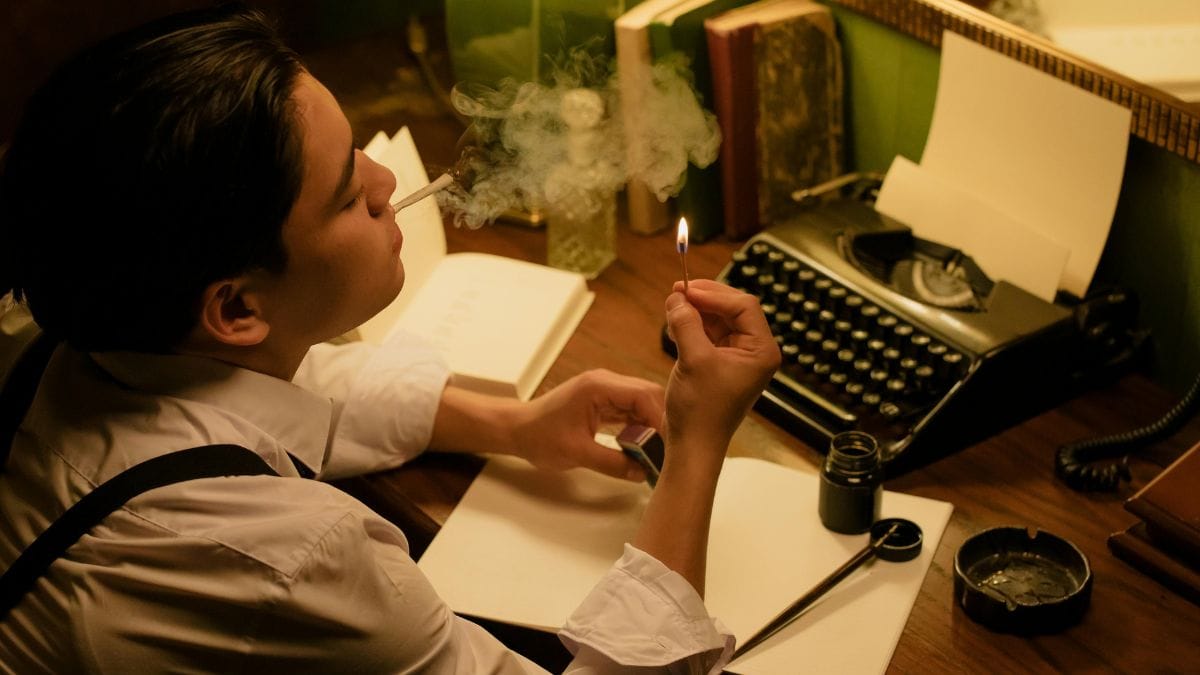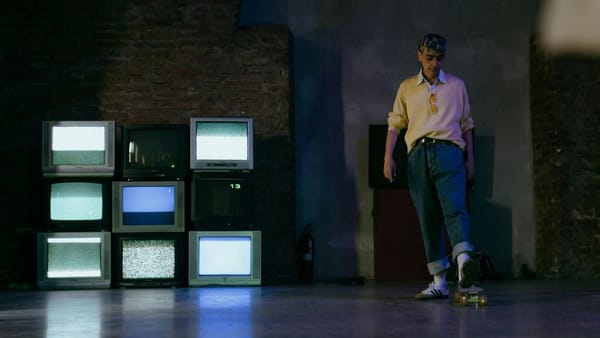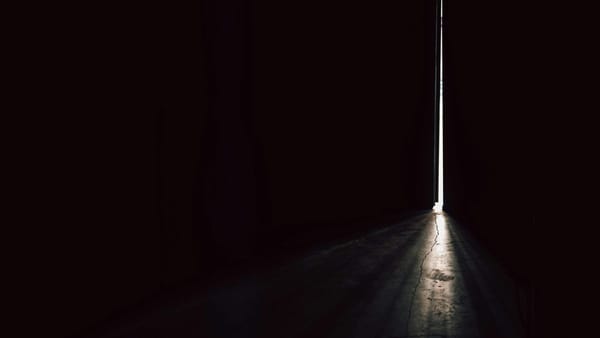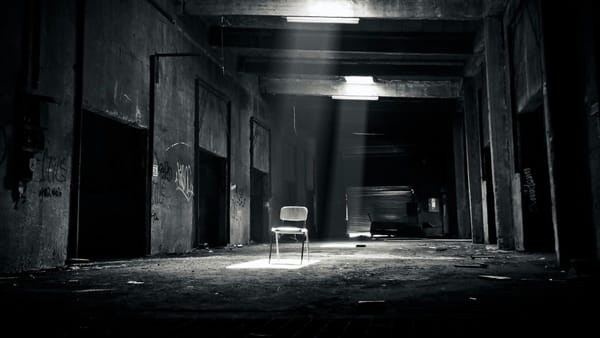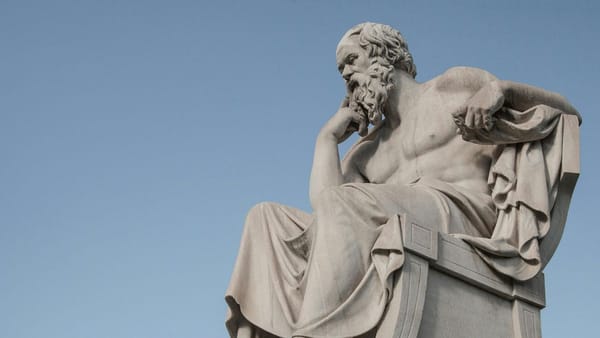I was never interested in either writing or reading as a child. If I didn’t have a sister who wrote essays for me back in school, I would’ve been in deep trouble. But the paradox is that I was writing — journaling to myself my whole life, whenever I felt lost or needed to make an important decision. It was the kind of writing Eleanor Roosevelt once described: “I write to discover what I think.” Yes, that’s what I was doing, and it was completely natural. I would’ve done that whether I eventually became a writer or not.
When I finally decided to stop holding myself back and publish my thoughts in 2019, I thought I had found my calling — and that it was generally cool. I did find my calling, and it might be cool for me, but I quickly learned that not so many people have a good opinion about writing and writers.
When writing becomes a mirror you can’t look away from
One time, a woman friend told me that a writer is one of the biggest red flags in dating for women. One reason, of course, is knowing that it’s more of a hobby than work — and even if it’s work, then barely a rewarding one. But it was more than that. The biggest red flag was thinking and reflecting too much. She pointed out that women like intelligent men, but not too intelligent, because at some point, when you question too much, intelligence becomes a problem.
Being in this community for years, I’ve come to understand why. Where there is thought and reflection — even if not too deep — there’s usually a kind of low vibration. And it’s worse than people imagine. After seeing a lot, I can easily place the writing community as the most unhappy and least vibrant one I’ve ever been around. Many artistic circles share this trait because of the romantic idea that “the true artist must suffer.” Writers are the pinnacle of that myth.
The age of speed and the collapse of contemplation
Yet there’s another layer to this unhappiness. It’s not only psychological — it’s structural. The world that once needed writers — patient observers, long-form thinkers — now runs on speed. Reflection doesn’t fit the rhythm of the feed. The market rewards content, not contemplation. The writer, once a shaper of culture, has become an antique craftsman in an automated factory. So their suffering isn’t just inner turmoil; it’s also the pain of being outdated. They still try to speak slowly in a world that scrolls faster than meaning can form.
And that’s what makes the contrast with other art forms so striking.
When reflection loses its place in society, expression through the body — or through visuals — often takes its place. Movement and imagery have replaced language as the preferred carriers of meaning. I noticed this again when I reconnected with the dance community. These people — dancers, instructors, choreographers, studio owners — struggle financially like all other artists, writers included. But they operate on a completely different frequency.
While the written word quietly drowns in the flood of short videos and fast visuals, dancers surf that very wave. They play with form. They post reels, stories, and fragments of choreography that breathe and move. Even when the algorithm ignores them, at least they have their bodies, their studios, their communities—something alive and vibrating.
Writers, on the other hand, sit alone in their basements, trying to turn silence into meaning. They live in words — an old medium that no longer fits the screen. The world wants images now, not sentences. And that’s why the contrast feels almost existential: one art form dissolving in solitude, the other still pulsing in shared motion. And maybe that’s the deeper difference between them.
Dancers process the world through the body — through rhythm, contact, breath. Writers process it through the mind — through analysis, reflection, and language. One releases tension by moving; the other creates tension by naming. It’s two ways of touching reality: one with muscles, one with meaning.
And that’s where the trouble begins.
The mind as both instrument and wound
Many writers don’t realize that part of their pain comes from resisting the age they live in. The form has changed — the world has moved on. Thought has become visual, compressed, and fast, yet writers still try to speak in paragraphs to an audience that now listens in flashes. When the form collapses, they mistake cultural change for personal failure and call it melancholy.
They look inward, convinced that their unhappiness comes from the weight of their own mind. They quote Hemingway — “Happiness in intelligent people is the rarest thing I know.” And there’s truth in that. Intelligence is a blade meant to cut through illusion, but if you turn it inward too often, it begins to wound. Writers live in dissection mode — analyzing, decoding, naming. What was once meant to clarify the world ends up carving them apart.
Their real wound lies deeper. It’s not only about intellect — it’s about overexposure. Writers don’t just think too much; they see too much. In a world of constant noise and shifting symbols, they stay too aware for their own peace, carrying the full weight of meaning in a culture that rewards none. That clarity, once their strength, turns against them. Awareness becomes a kind of fever.
And when the fever rises, most try to cure it by thinking even more — writing more, dissecting more, cutting deeper into the same wound. But the real medicine isn’t in knowing less; it’s in seeing more quietly. There’s a kind of intelligence that doesn’t analyze but rests, a still clarity that writers often lose. They try to think their way out of the very thinking that hurts them. Yet peace never comes from another incision. It comes only from putting down the knife.
Because yes — drowning in symbols, names, dates, and other nonsense makes writers sick. And so suffering accompanies them. It’s a strange irony that the more you actually know about the man-made world, not life itself, the unhappier you become — seeing how full of illusion and manipulation it is. I don’t want to sound like a doomer, but it’s hard not to feel at least a little depressed when you see how the whole socio-cultural game operates in this cute little post-industrial system of late-stage capitalism — or, perhaps, feudalism in its technocratic form.
Why people turn away from those who see too clearly
And maybe that’s the real reason people fear writers. It’s not the struggle or instability — it’s contagion. Reflection is contagious. When you stand too close to someone who sees clearly, you start to feel the cracks in your own illusion. People sense that. They look at writers and see what too much awareness does to a person: the low vibration, the melancholy, the detachment from ordinary joy. It’s not hatred — it’s self-preservation.
So they scroll away, look for lighter energy, shorter sentences, faster dopamine. They want to stay alive in the algorithm’s sense of the word — always moving, never still enough to see. And maybe they can’t help it. The world keeps shouting, and everyone’s tired. Sometimes, not looking too deeply is just a way to survive. But writers make them pause. And pausing is dangerous.
As Carl Jung once wrote: “People will do anything, no matter how absurd, in order to avoid facing their own soul.” And that’s precisely what writers do, often without meaning to — they point people back toward that soul. And in a world built on constant distraction, nothing is more frightening than that.
Thanks for reading. If you enjoy my work and want more like this, consider supporting it. This space exists thanks to readers — essays and research take time. You can subscribe, contribute, or explore reading lists I curate. Every bit of support helps.

